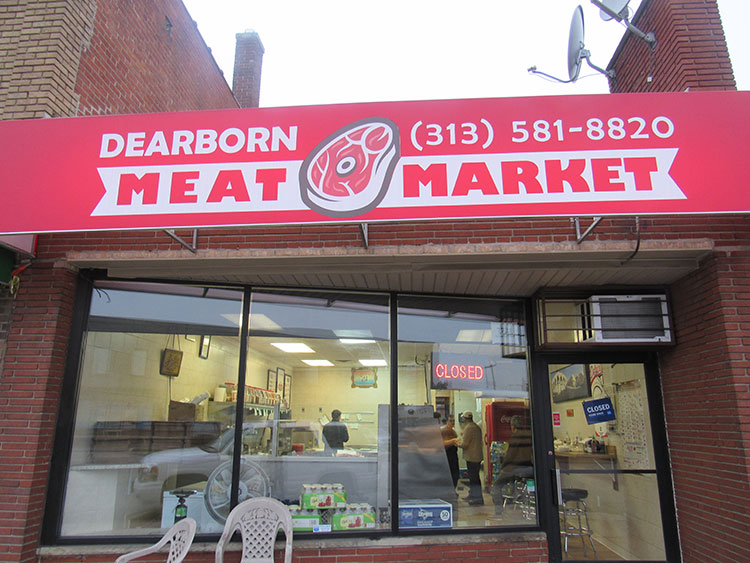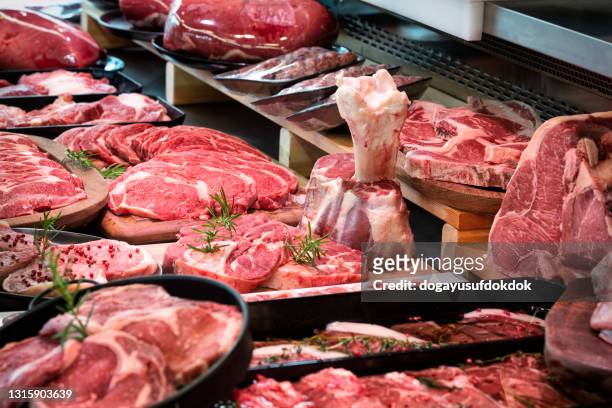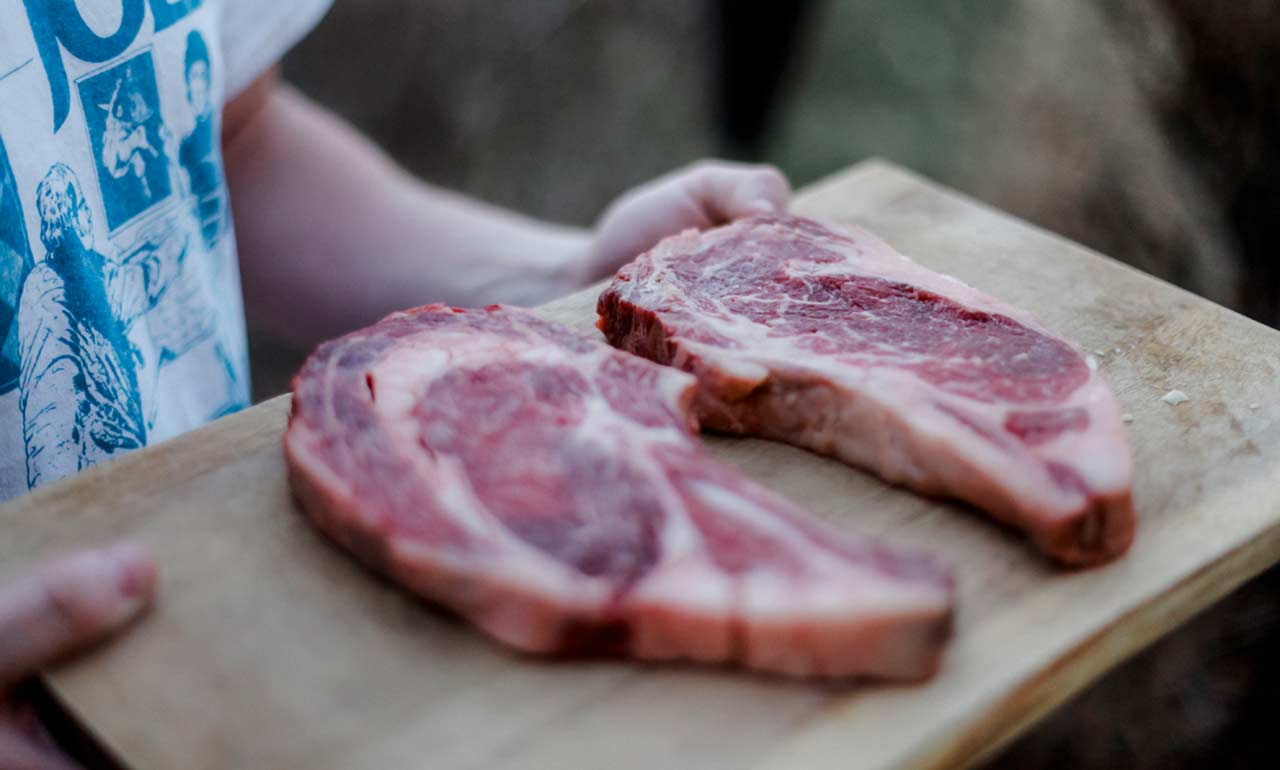Explore the Variety of Fresh Meats at Bagley Meat Market Edwardsville IL Today
Explore the Variety of Fresh Meats at Bagley Meat Market Edwardsville IL Today
Blog Article
Why Shopping at a Neighborhood Meat Market Guarantees Fresh, High-Quality Cuts
Buying at a neighborhood meat market supplies unique benefits that usually go undetected by consumers accustomed to bigger retail chains. These markets offer straight accessibility to fresh, top notch cuts, a result of lessened transportation time from farm to respond to. This not only improves taste yet additionally supports regional farmers, cultivating neighborhood partnerships and lasting techniques. Extensive top quality control gauges make sure that each acquisition meets high requirements of safety and quality. Yet, the ramifications of picking local extend beyond immediate benefits, triggering a better assessment of what this selection really implies for both customers and the local economy.
Advantages of Regional Sourcing
In the realm of food procurement, the benefits of local sourcing attract attention prominently. By buying meat from local markets, customers obtain direct accessibility to items that are commonly fresher and a lot more tasty than those discovered in larger, business grocery stores. Regional sourcing minimizes the time and distance food travels from ranch to table, which not just improves taste yet also preserves dietary value.

Additionally, neighborhood sourcing frequently offers openness pertaining to the origins of the meat. Customers can make inquiries about the farming practices used, pet well-being standards, and whether the meat is grass-fed or organic. This info equips shoppers to make informed decisions aligned with their values.
Quality Assurance Specifications
Regional meat markets frequently comply with strenuous top quality control requirements that guarantee the products used satisfy high security and freshness standards. These criteria normally encompass various phases of the meat manufacturing process, from sourcing to handling and storage.
First, local markets often develop strict supplier criteria, guaranteeing that just trustworthy ranches and producers are utilized - bagley meat market edwardsville il. This minimizes the possibility of contamination and promotes greater animal well-being criteria. Furthermore, several regional meat markets implement regular assessments to confirm that the meat is refined under sanitary problems, better decreasing health and wellness threats
Temperature control is an additional vital element of top quality assurance. Neighborhood meat markets often check refrigeration systems to preserve ideal storage space temperatures, making sure that meat continues to be safe and fresh for consumption. The execution of traceability systems allows markets to track the beginning of their products, supplying openness and accountability.
Finally, personnel at neighborhood meat markets are frequently trained to identify indicators of spoilage and recognize proper handling strategies. This commitment to quality assurance not only raises the total standard of the meat but likewise cultivates customer trust, making local meat markets a trustworthy resource for top quality cuts.
Sustaining Local Farmers
Supporting local farmers is important for promoting a sustainable food system and improving area strength. They directly contribute to the livelihoods of farmers in their area when consumers choose to shop at local meat markets. This not only sustains the local economic situation yet additionally reinforces the agricultural sector, making certain that it stays feasible and lively.


Furthermore, sustaining regional farmers promotes a feeling of area and look at this site connection between producers and customers. It urges transparency in food sourcing and instills count on, as clients can create relationships with the individuals who increase their food. This direct connection eventually results in an extra involved and educated public, which is crucial for advocating for sustainable agricultural techniques in the future.
Lasting Practices
Lasting techniques in meat markets play an essential function in promoting ecological stewardship and making sure pet well-being. Regional meat markets typically prioritize sourcing their items from farms that implement ethical and lasting farming techniques. These practices consist of rotational grazing, which aids keep dirt health and wellness and decreases carbon exhausts, together with reducing the use of antibiotics and hormones in animals.
In addition, regional meat markets go usually emphasize openness in their supply chains. Consumers are offered with information regarding the origin of their meat, allowing them to make enlightened selections that line up with their worths. By sustaining local farmers that practice sustainable approaches, consumers add to the conservation of biodiversity and the reduction of transport emissions related to long-distance meat distribution.
Additionally, lots of local meat markets participate in waste reduction strategies, such as making use of every part of the pet and promoting off-cuts that could otherwise go unsold. By fostering a much more sustainable technique to meat consumption, these markets not just provide high-grade products yet also add positively to the atmosphere and animal welfare. Essentially, shopping at a regional meat market aligns consumers with a more comprehensive activity in the direction of accountable and ethical food sourcing.
Customized Client Service
Buying at a meat market often includes even more than just the items supplied; it is likewise concerning the experience and the relationships developed in between customers and staff. Customized client service is a characteristic of local meat markets, setting them in addition to larger grocery store chains. Educated personnel put in the time to understand individual client choices, making certain that each see is customized to specific needs.
Clients benefit from skilled recommendations on cuts, cooking techniques, and prep work pointers, fostering a sense of trust and commitment. This individualized communication enables clients to ask inquiries and look for referrals, resulting in educated investing in choices. Employee usually bear linked here in mind normal clients and their preferences, creating a welcoming atmosphere that grows area connections.
Moreover, individualized solution encompasses special requests, such as custom cuts or particular prep work techniques, which larger retailers might not suit. This level of interest enhances the commitment of local meat markets to top quality and consumer satisfaction.
Essentially, customized client service not only boosts the buying experience however also guarantees that clients entrust the most effective products suited to their cooking needs, making every see a rewarding one.
Verdict
Sustaining local farmers promotes neighborhood relationships and reinforces the regional economic situation, while sustainable techniques add to ecological stewardship. In addition, tailored client solution enhances the shopping experience, making regional meat markets a preferred option for consumers looking for both quality and ethical considerations in their food sourcing.
The ramifications of picking regional expand past instant advantages, prompting a better evaluation of what this choice genuinely suggests for both customers and the local economic climate.
Supporting neighborhood meat markets additionally contributes to the local economic situation. Regional meat markets frequently monitor refrigeration systems to preserve optimum storage space temperature levels, making certain that meat continues to be risk-free and fresh for consumption.Regional farmers are frequently much more attuned to the specific demands of their areas, growing crops and increasing livestock that straighten with regional tastes and preferences. Supporting neighborhood farmers cultivates area connections and strengthens the neighborhood economic situation, while lasting techniques add to environmental stewardship.
Report this page